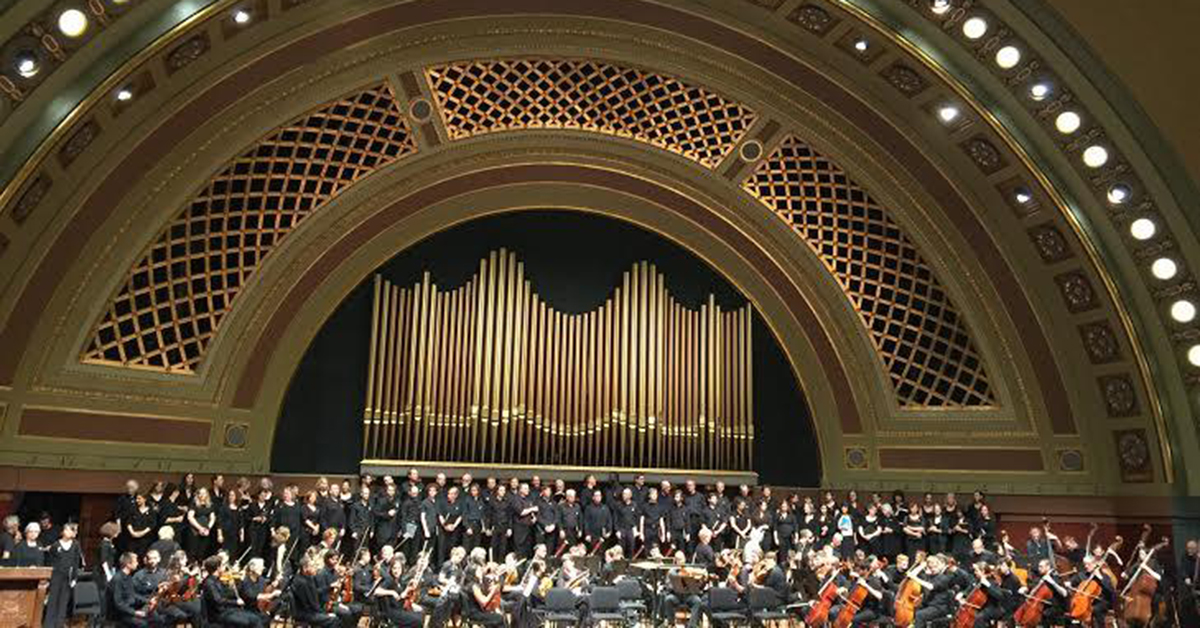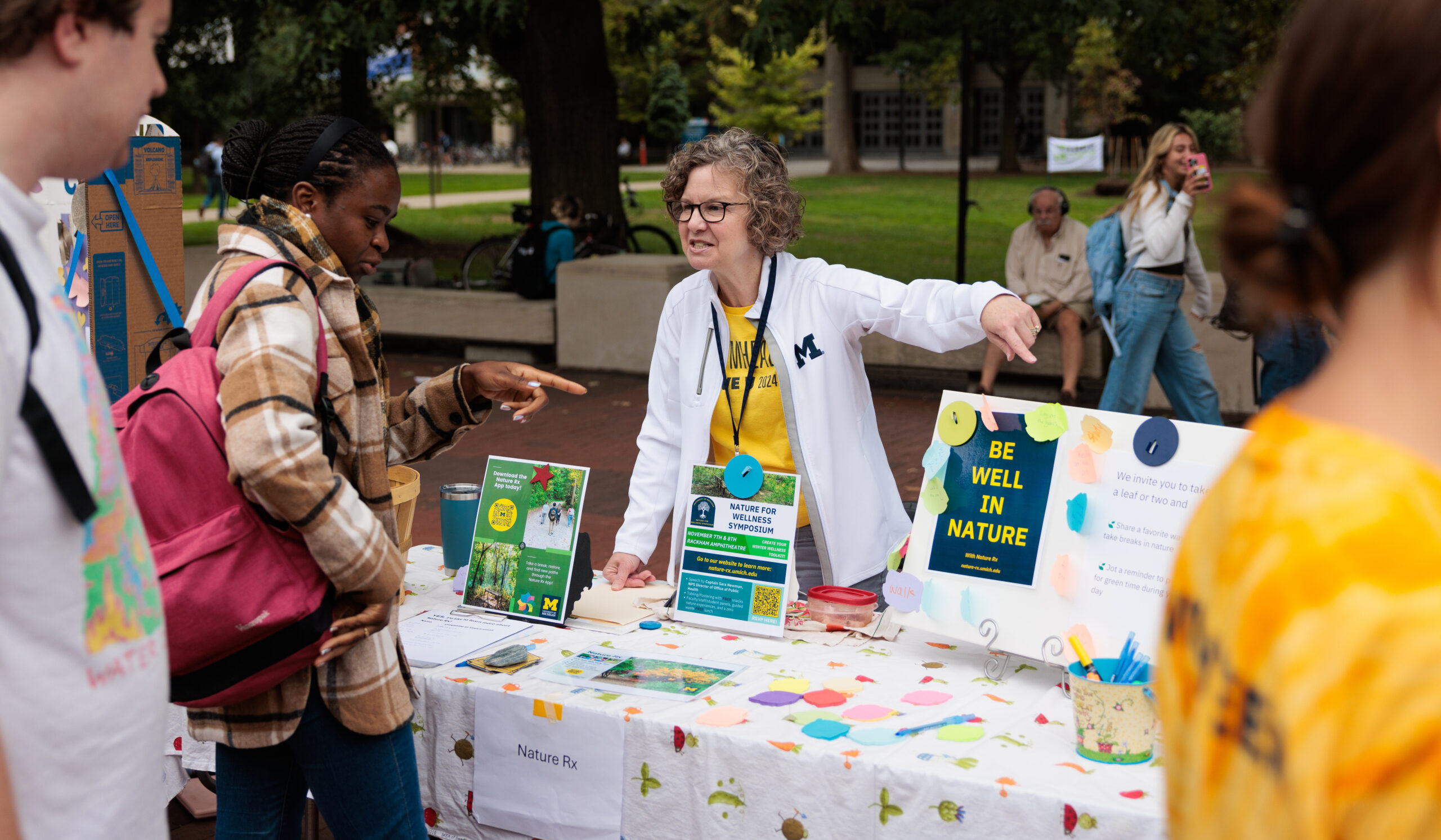Just hours after the Orlando shootings, Austin Stewart, ’09, a U-M PhD candidate in music, and Kevin Fitzgerald, ’12, an orchestral conductor, were singing—as they do every Sunday—at the West Side United Methodist Church in Ann Arbor. But as members of the LGBT community, the service felt particularly somber to them. Their minds kept drifting to the victims and their families far away in Florida. Upon leaving the church, they both knew they wanted to do something more than pray. They wanted to honor them with a moving musical event. Fitzgerald’s mental repertoire automatically landed on “Requiem in Minor D”—the unfinished mass Mozart was writing upon his death in 1791.
“At first we were thinking a small group should perform it on the steps of Rackham or on the Diag,” said Fitzgerald. But by Sunday afternoon, “Requiem for Orlando” had quickly grown into a much bigger event. By the end of the day, Arianne Abela, ’16, had agreed to be the choir master, with Fitzgerald conducting the orchestra. But it was a phone call by Colin Knapp, ’14, an organist with a local church, made to the professor and chair of the U-M Department of Organ, James Kibbie, that led to the concert being held in Hill Auditorium.
“Kibbie is the ‘King of Hill,'” said Fitzgerald, explaining how the organist immediately wrote to Aaron Dworkin, dean of the School of Music, Theatre & Dance, who by Monday had agreed to cover the costs and provide the staff needed for it to be held at Hill the following evening.
Next up was a massive social media and email campaign to find singers and instrumentalists. Those offering to sing and play came from everywhere, including a middle school student in a choir and a math professor eager to play cello. “In the end, we had to turn down people,” Stewart said, adding that church musical directors provided hundreds of scores of the music. The group also lined up a number of speakers: Dworkin, U-M President Mark Schlissel, Ann Arbor Mayor Christopher Taylor, longtime LGBT activist Jim Toy, and a number of clergy from different faiths throughout the city.
On Tuesday, June 14, at 6 p.m., the chorus rehearsed under Abela’s direction at the United Methodist Church on South State Street, while the orchestra practiced at Hill Auditorium with Fitzgerald. Forty-five minutes later, the two groups, along with the four soloists, convened at Hill. One of the soloists was U-M Emeritus Professor George Shirley, who recently won a National Medal of Arts award.
As 2,000 audience members began filing into the auditorium, a quiet gun control protest took place outside. Inside, staff handed out dates to Muslim participants as the sun set, allowing them to break the day’s fast during Ramadan. By 8 p.m., 337 people on the stage, which included 67 in the orchestra, all dressed entirely in black, began performing Mozart’s final mass.
When asked how the requiem sounded, Fitzgerald said, “Remarkable. Everyone was mentally, spiritually, emotionally, and physically aligned.” Added Steward, “It transcended everything. For two full minutes afterward, there was complete silence.”
And then everyone in the auditorium was given the music to sing “Finlandia,” by Jean Sibelius, which includes the words “a song of peace for lands a-far and mine (…) a world united in its love for freedom, proclaiming peace together in one song.”





